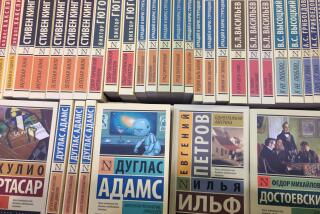Focusing on the Soviets
- Share via
For months politicians have been telling Americans what to think about emerging reforms in the Soviet Union. Sen. Bill Bradley (D-N.J.) turned the prism the other day, telling them not what to think but how to think--without illusions, without a lot of stereotypes cluttering their minds but also with some hope.
The first thing that set Bradley’s remarks apart from the pack was his focus on human beings and not on nuclear weapons; his discussion of the weapons simply gave urgency to the need for humans in both nations to think more clearly and rationally about themselves and each other. The second thing was a sense of Russian history rare in American politics that gave real depth to his portrait of what the people in both countries have in common and what makes them so different. They share a devotion to the land, a love of literature from Anton Chekhov to Saul Bellow, even of basketball and hockey. He spoke also of very real differences that mystify Americans, the Soviet denial of “many freedoms of expression” and their “preoccupation with secrets.”
In a recent Los Angeles speech, President Reagan said that problems between East and West would dissolve overnight if only--as Prof. Henry Higgins might have said--the Russians could be more like us. The musty bondage imposed by centuries of czars and decades of dictators leaves Soviet citizens with no way to measure freedom on the American scale, and Bradley indulged himself in no such fantasy.
Instead, he saw hope that over a long period more stable relations might emerge if a legacy of repression and the privileged few who defend the status quo in Moscow are forced to give way to more freedom for Soviet citizens to choose what they will read and where they will travel and whether to go to church.
Americans, he thought, can contribute by keeping in mind the profound differences between the nations and by avoiding swings “between wishful thinking and hostile pessimism.” Thus they can judge how broad a swath the reformers are cutting through Soviet history and when it might help to encourage them instead of daring them to try.
More to Read
Get the L.A. Times Politics newsletter
Deeply reported insights into legislation, politics and policy from Sacramento, Washington and beyond. In your inbox twice per week.
You may occasionally receive promotional content from the Los Angeles Times.










